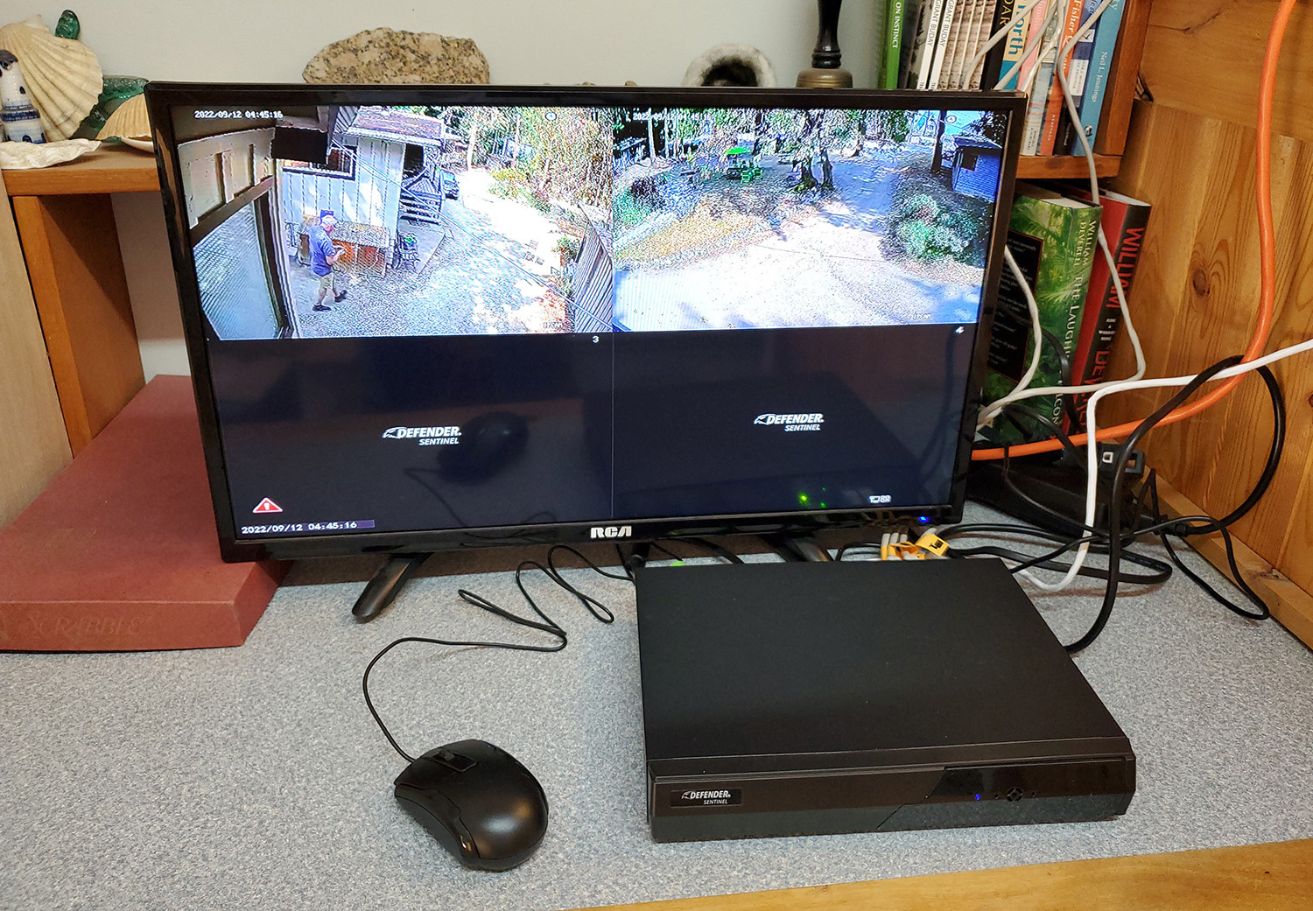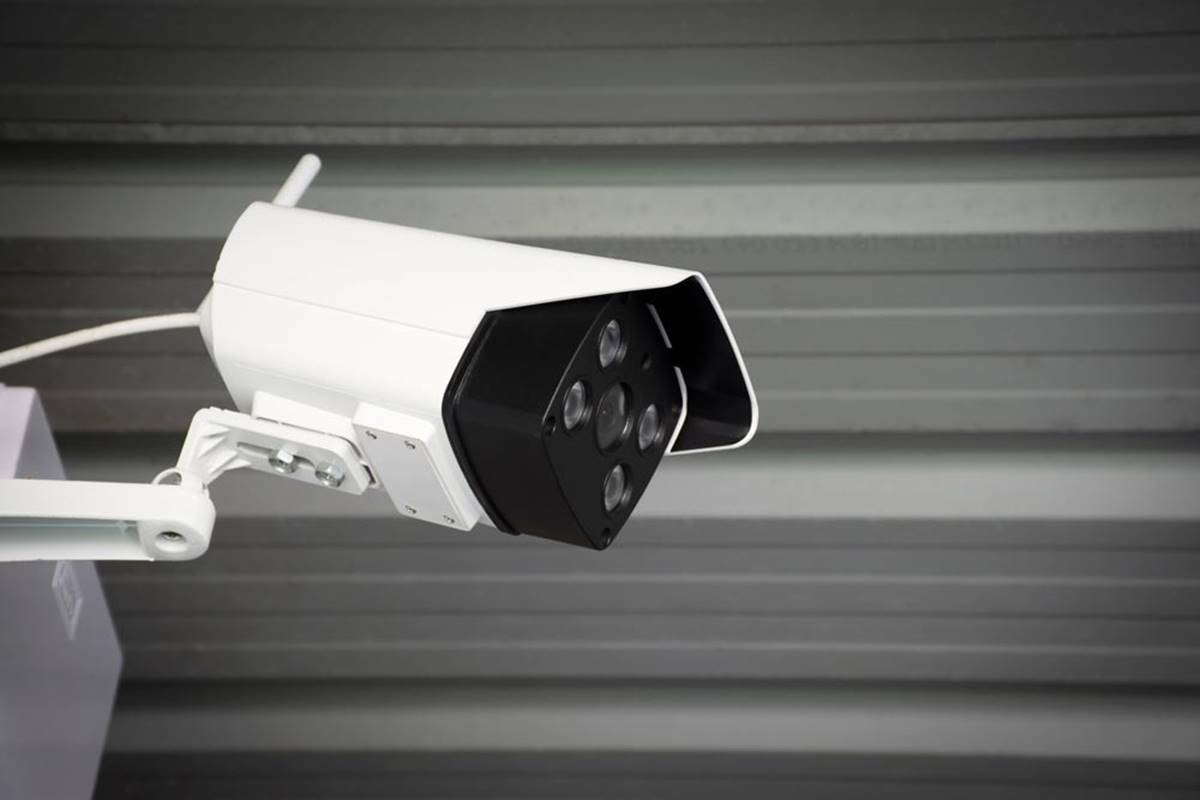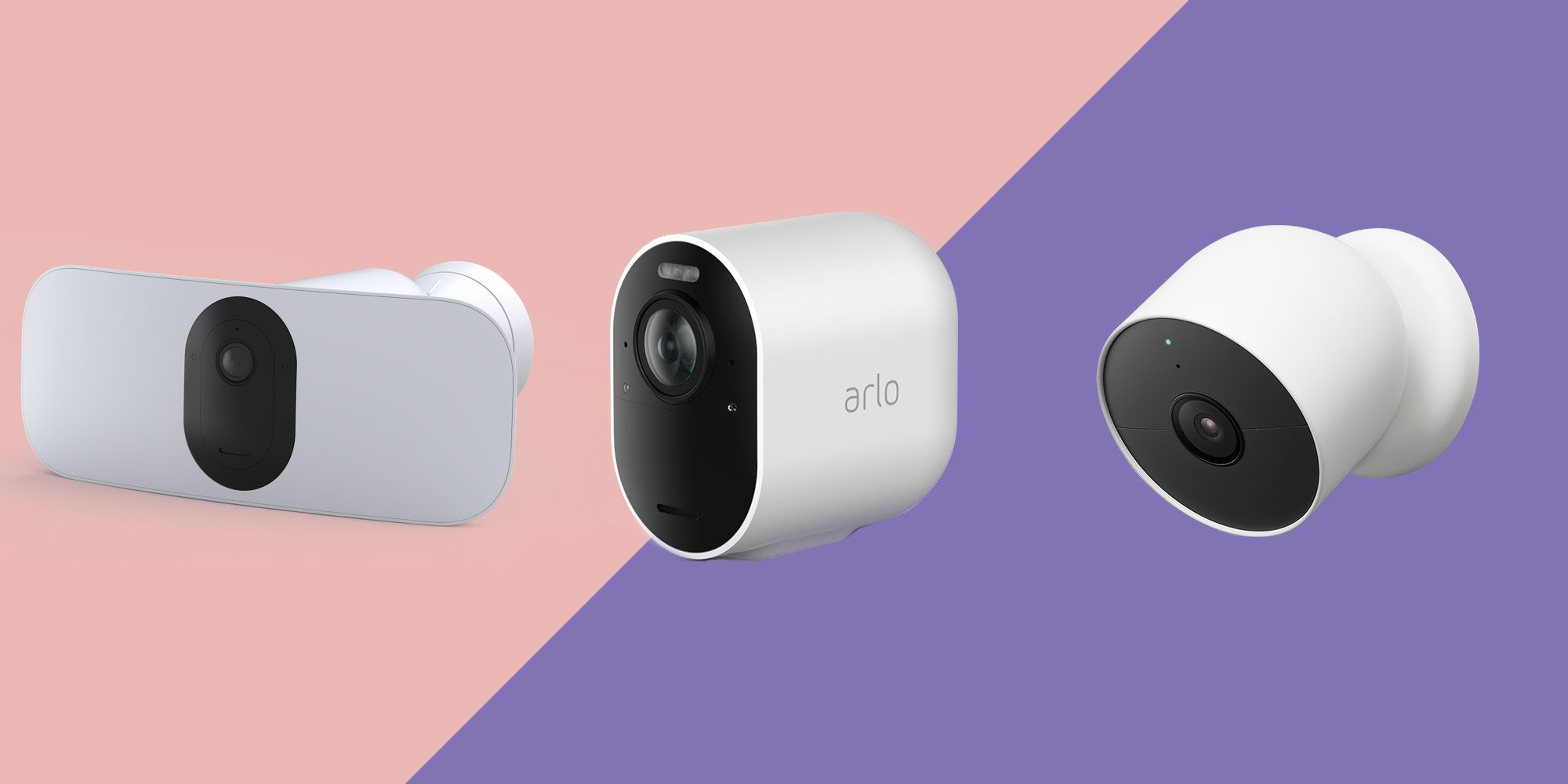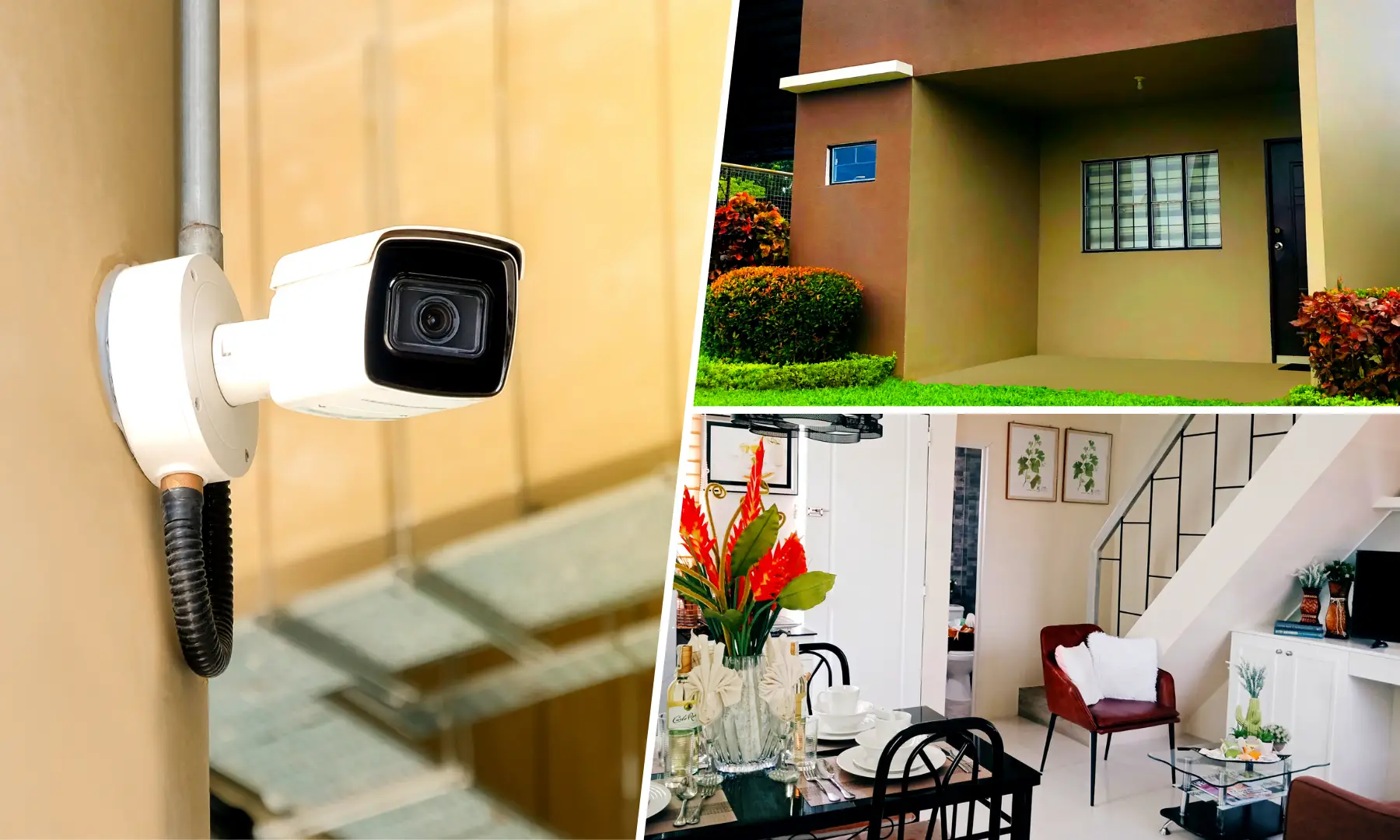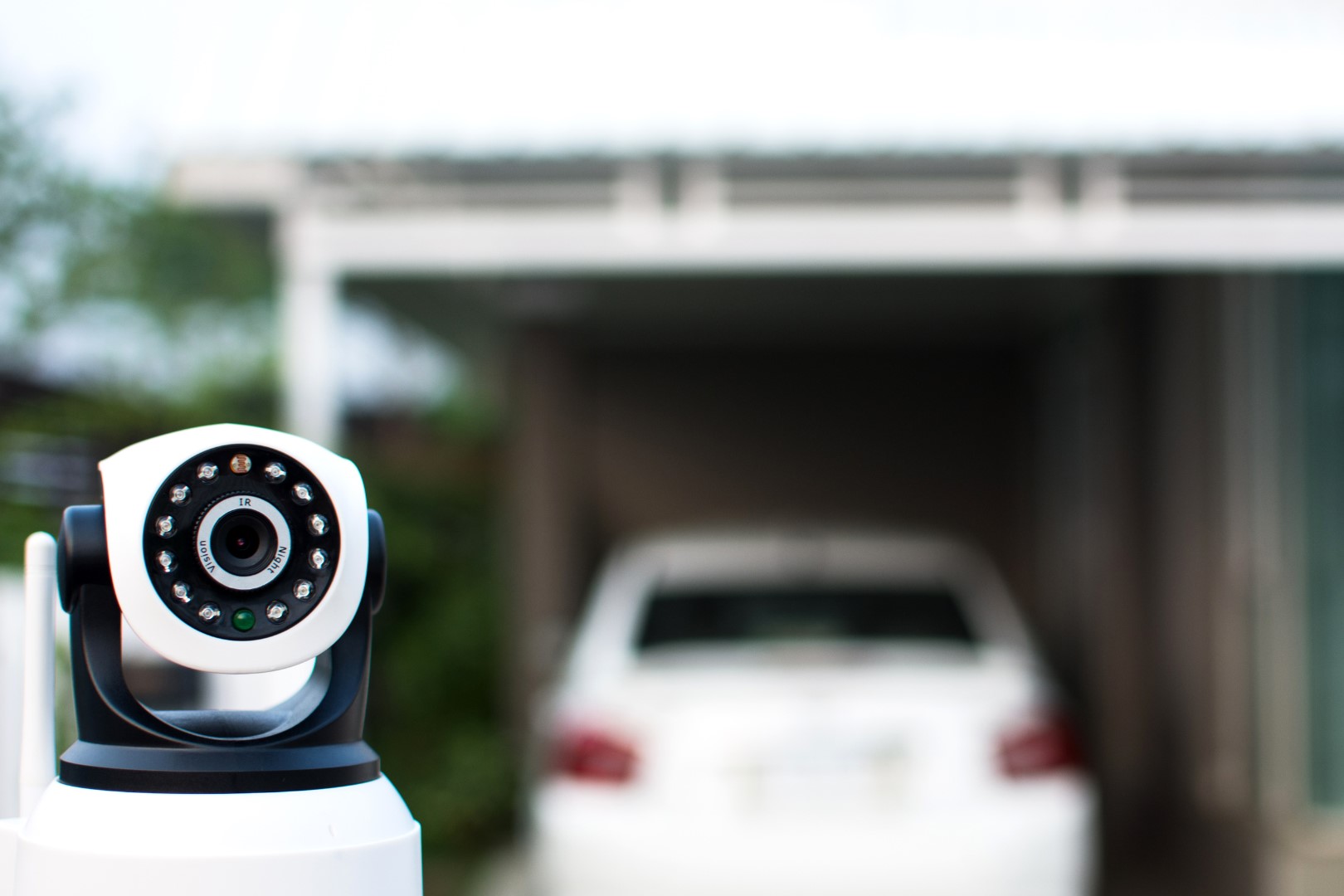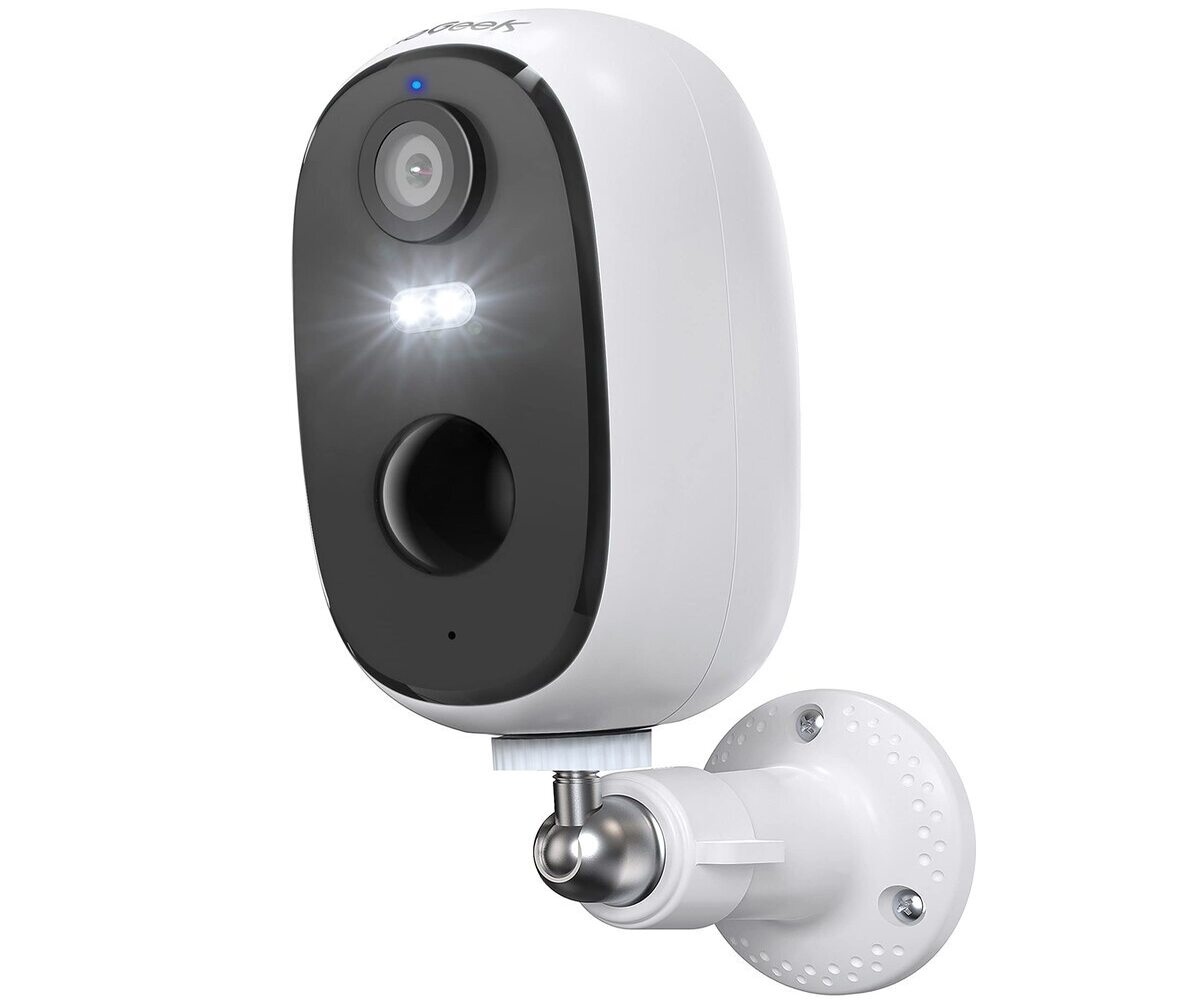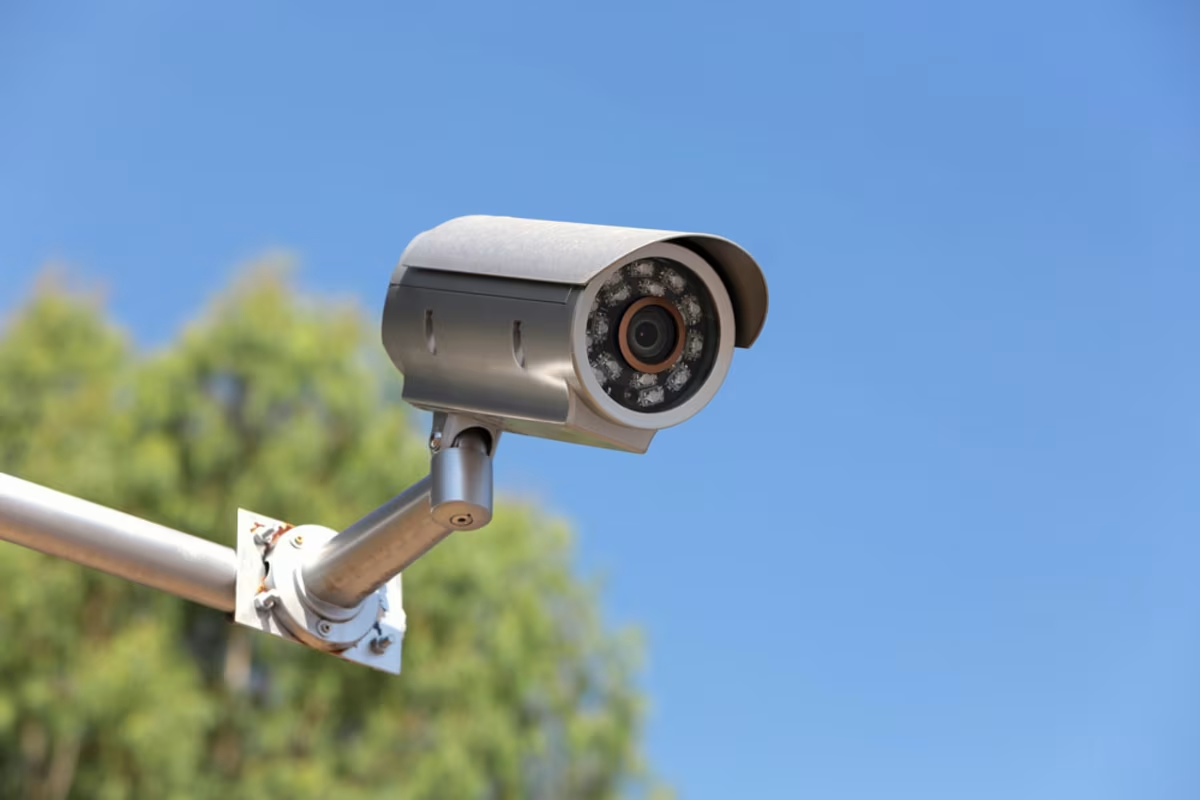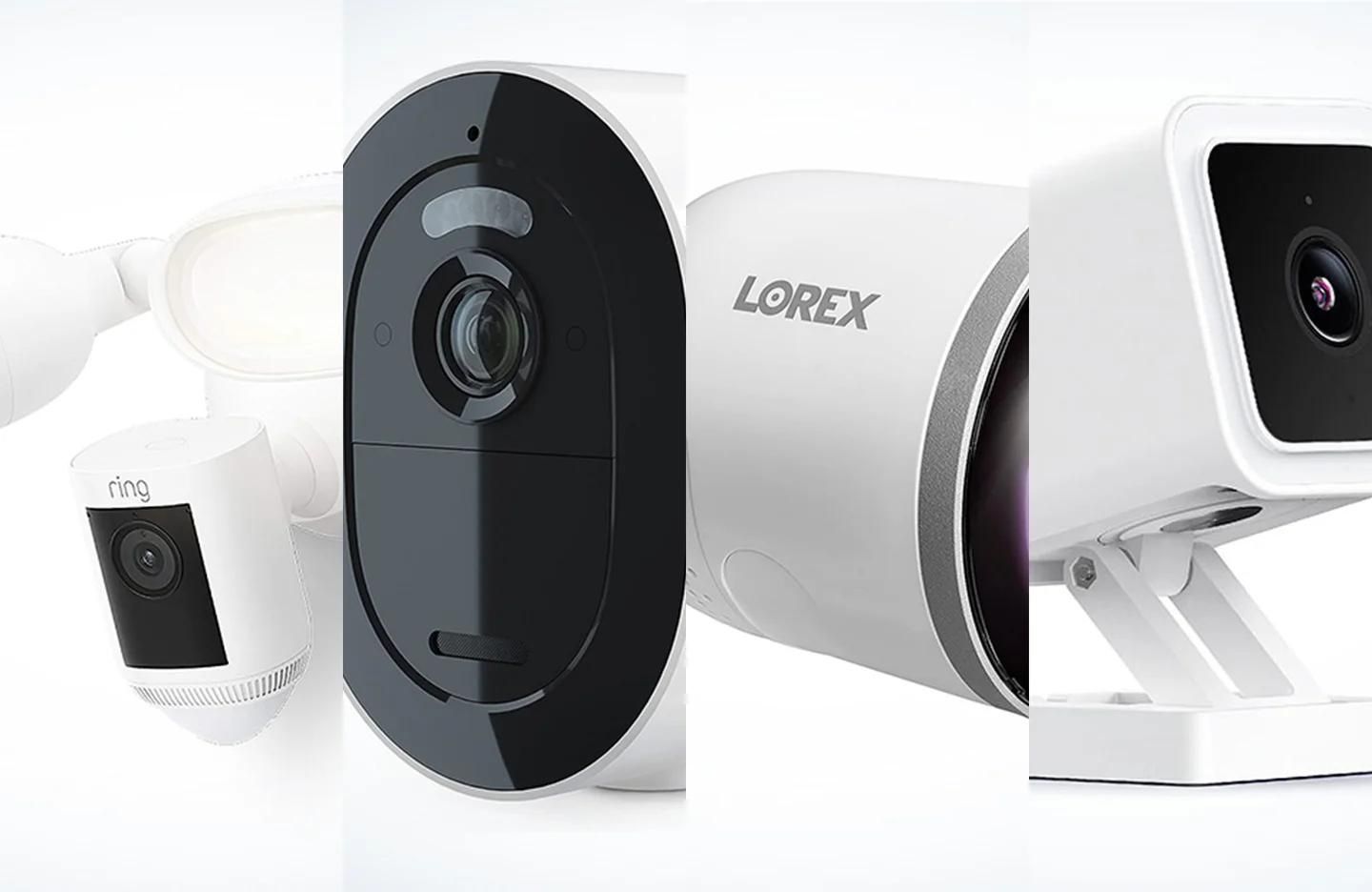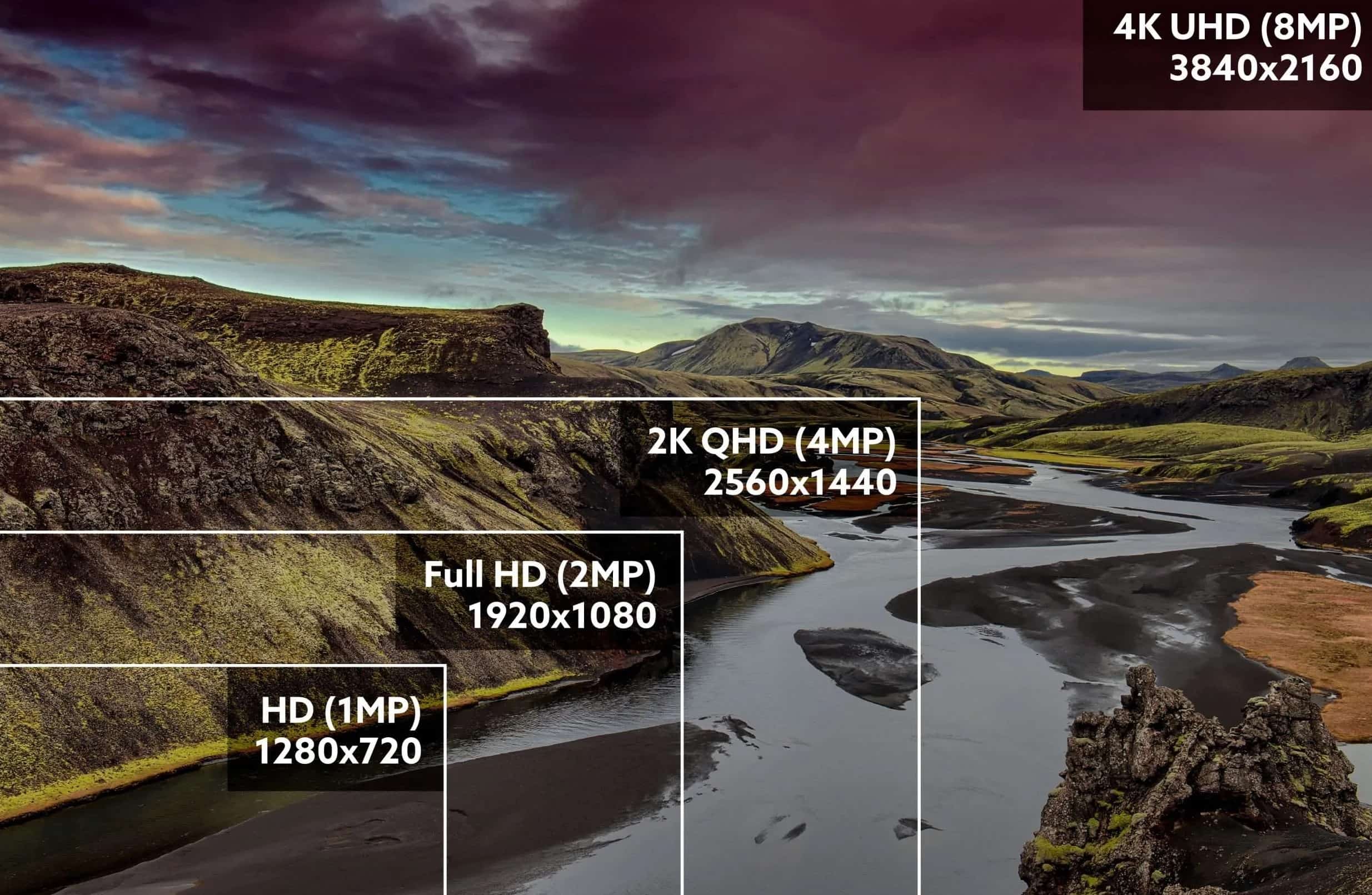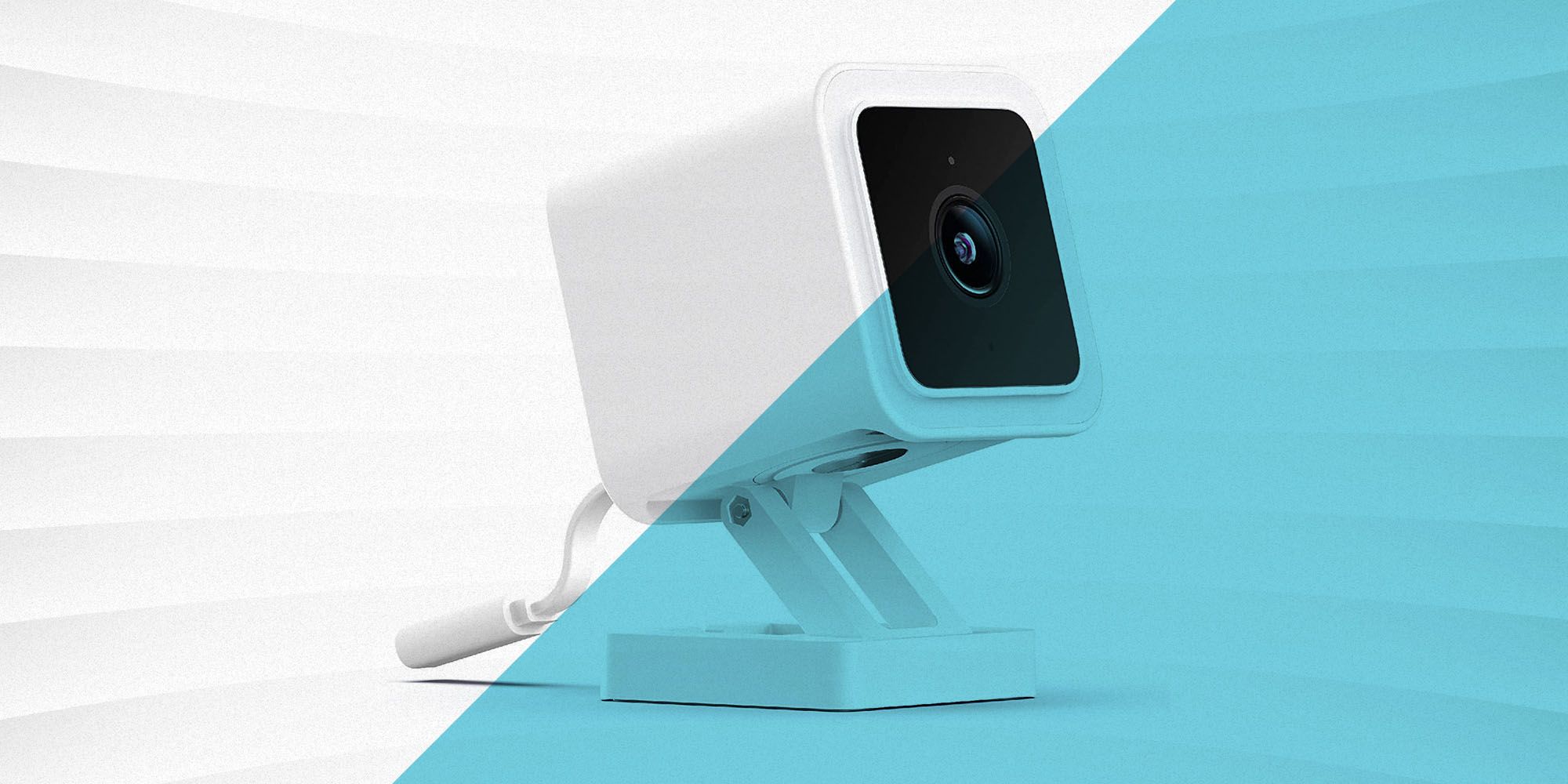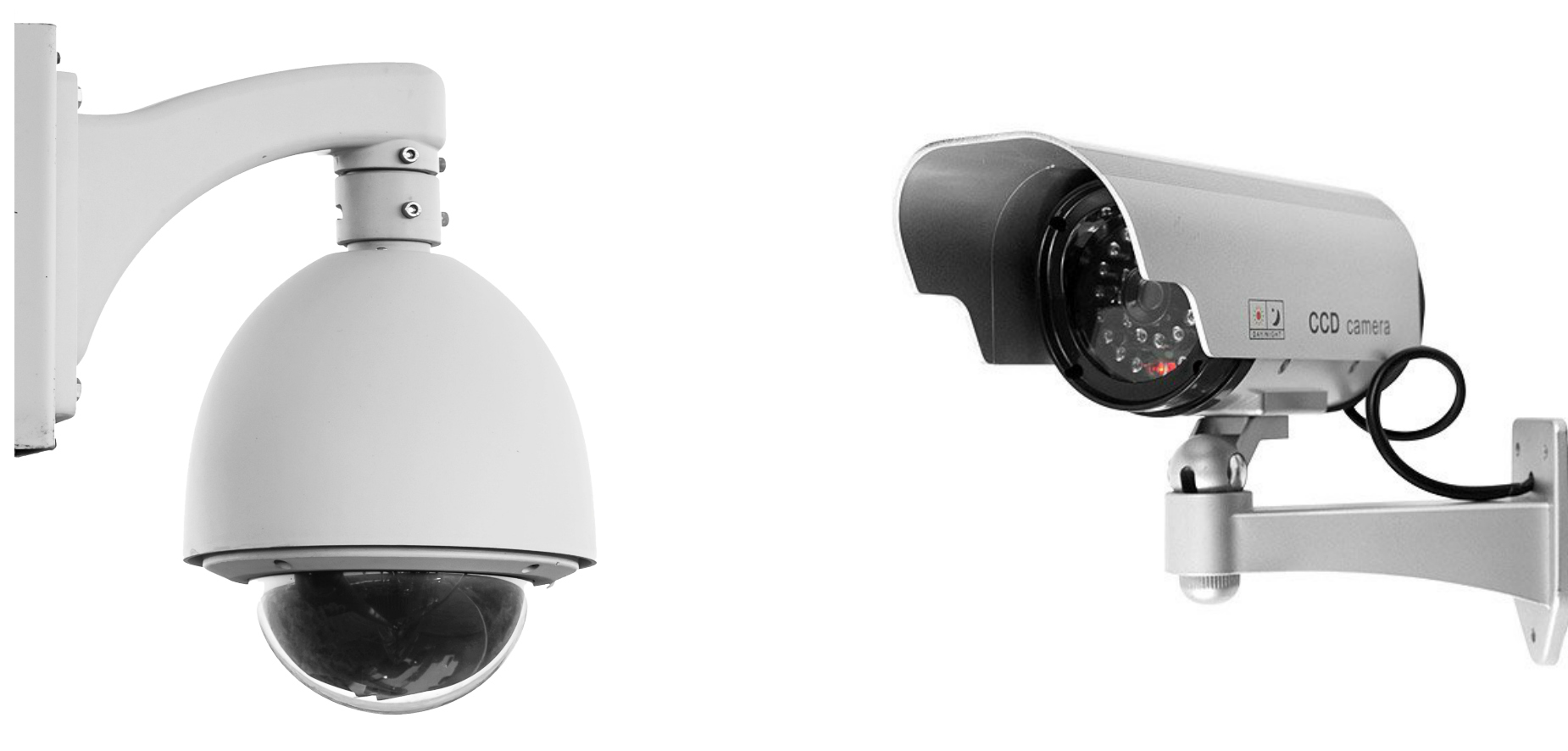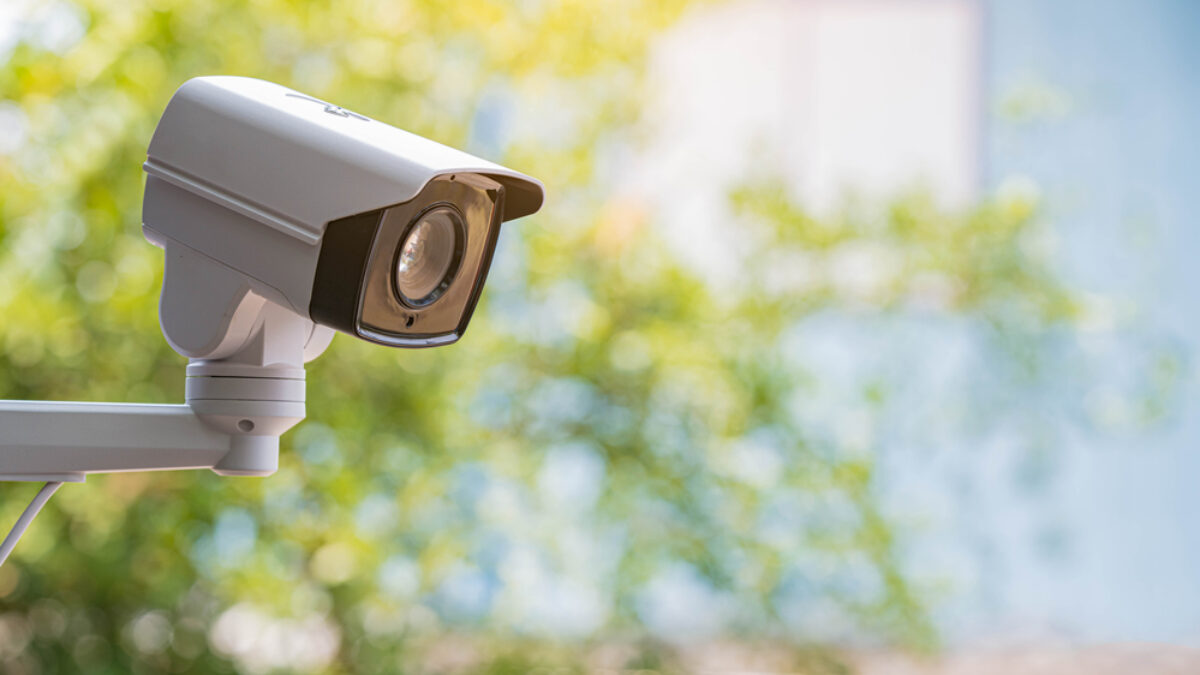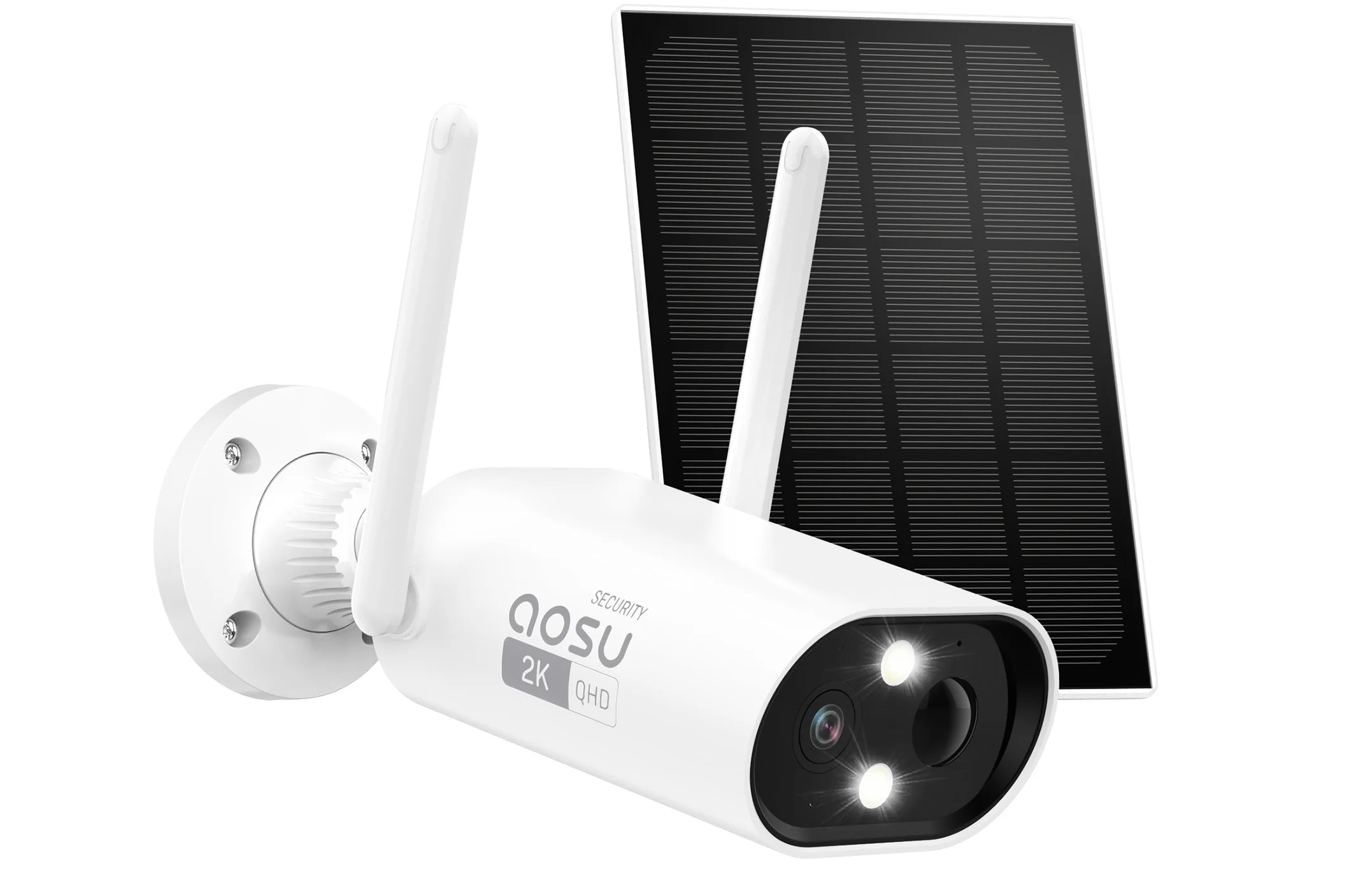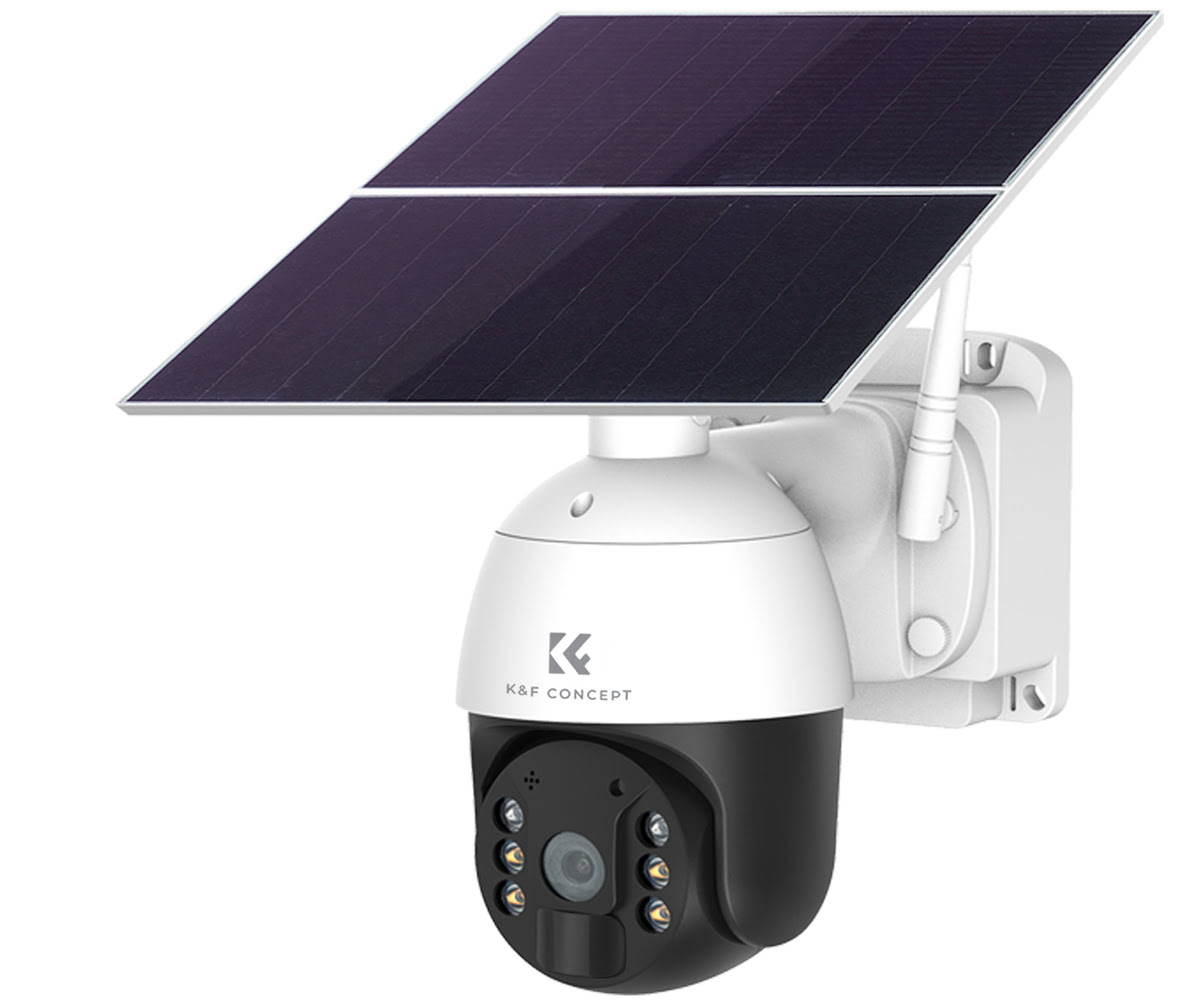Home>Home Security and Surveillance>What Is The Best Solar-Powered Security Camera
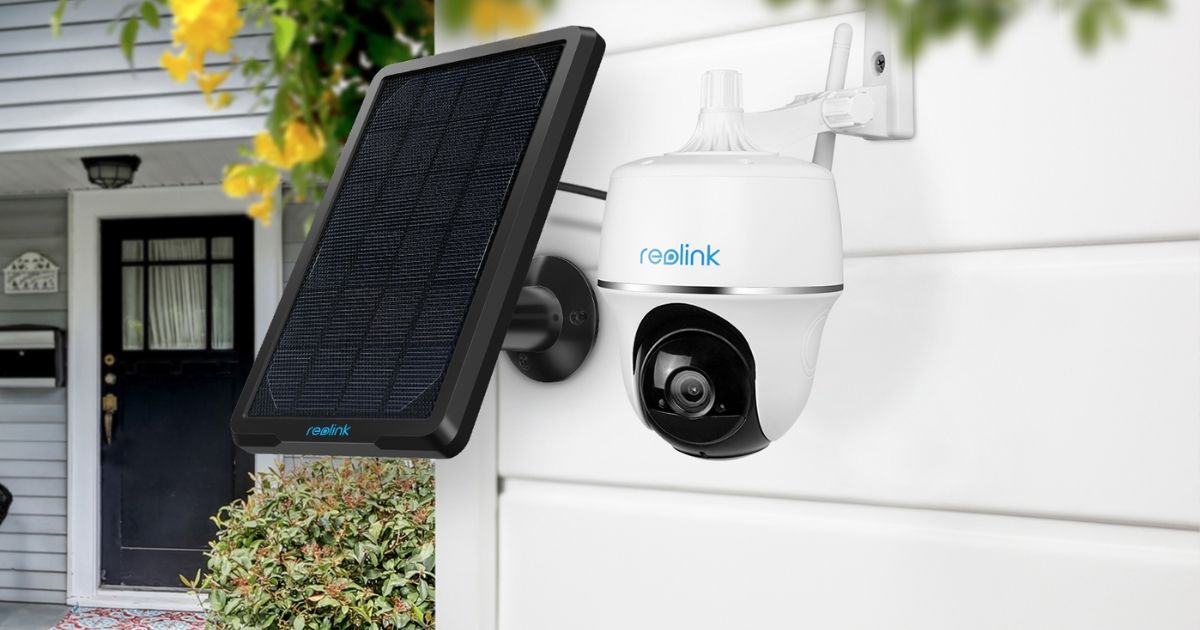

Home Security and Surveillance
What Is The Best Solar-Powered Security Camera
Modified: November 1, 2024
Discover the best solar-powered security camera for your home security and surveillance needs. Enhance your protection while minimizing energy consumption.
(Many of the links in this article redirect to a specific reviewed product. Your purchase of these products through affiliate links helps to generate commission for Storables.com, at no extra cost. Learn more)
Introduction
Welcome to the world of home security and surveillance! In today’s increasingly digital age, it is essential to protect our homes and loved ones from potential threats. Fortunately, advancements in technology have made it easier than ever to ensure the safety and security of our living spaces. One such innovation is the emergence of solar-powered security cameras.
Solar-powered security cameras offer an eco-friendly and cost-effective solution for monitoring and protecting your home. These cutting-edge devices harness the power of the sun to provide continuous surveillance without the need for traditional power sources or extensive wiring. They offer flexibility in terms of placement, allowing you to monitor areas that may be difficult to reach with traditional cameras.
In this article, we will dive deep into the world of solar-powered security cameras, exploring how they work, their advantages, and how to choose the best one for your needs. We will also discuss top brands and models in the market, installation and maintenance tips, and address common issues and troubleshooting. So, let’s get started!
Key Takeaways:
- Solar-powered security cameras offer eco-friendly, cost-effective, and flexible home surveillance. They harness the sun’s energy, providing continuous monitoring without traditional power sources or extensive wiring.
- When choosing a solar-powered security camera, consider factors like power generation, image quality, connectivity, and brand reputation. Follow installation best practices and troubleshoot common issues for optimal performance.
Read also: 11 Best Solar Security Cameras For 2025
How Solar-Powered Security Cameras Work
Solar-powered security cameras work by harnessing energy from the sun to power their operations. These cameras are equipped with a solar panel that captures and converts sunlight into electricity, which is stored in a rechargeable battery. This battery provides the necessary power for the camera to operate, even during periods of low or no sunlight.
The solar panel of the camera is responsible for capturing sunlight and converting it into electricity. It is typically made up of photovoltaic cells, which are designed to absorb photons from sunlight and convert them into a flow of electrons. These electrons then generate an electric current, which is used to charge the camera’s battery.
During the day, when sunlight is abundant, the solar panel continuously charges the battery. The camera is designed to prioritize using the solar-generated power to operate its functions. This means that as long as the battery has enough charge, the camera will run solely on solar power, minimizing the need to use grid electricity or other power sources.
When the camera detects motion or is triggered by certain events, such as sound or remote access, it begins recording and transmitting the footage. The camera uses wireless technology, such as Wi-Fi or cellular networks, to send the video feed to a designated device, such as a smartphone or computer, allowing users to monitor their property remotely.
Solar-powered security cameras also integrate advanced features such as night vision, motion detection, two-way audio, and cloud storage. These features enhance the effectiveness and usefulness of the cameras, ensuring round-the-clock surveillance and providing peace of mind to homeowners.
Overall, solar-powered security cameras offer a reliable and sustainable solution for home security. By utilizing renewable energy sources, they reduce the reliance on grid electricity, lower energy costs, and minimize the carbon footprint associated with traditional surveillance systems.
Advantages of Solar-Powered Security Cameras
Solar-powered security cameras offer several significant advantages over traditional wired cameras. Let’s explore some of the key benefits:
- Cost-Effective: One of the main advantages of solar-powered security cameras is their cost-effectiveness. Since they rely on solar energy, they eliminate the need for costly electrical installations or running power cables across your property. This can save you money on installation costs and reduce your monthly energy bills.
- Eco-Friendly: Solar-powered security cameras are environmentally friendly options for home surveillance. By utilizing renewable energy from the sun, they help reduce your carbon footprint and contribute to a greener future. They also minimize reliance on non-renewable energy sources like fossil fuels.
- Flexible Placement: Unlike traditional wired cameras that require a nearby power source, solar-powered cameras can be installed in more remote or hard-to-reach areas. Since they are not limited by electrical outlets, you have greater flexibility in choosing the best location for optimal surveillance coverage.
- Continuous Operation: Solar-powered cameras are designed to operate even during power outages. Thanks to their built-in rechargeable batteries, they can continue capturing and storing footage, ensuring uninterrupted monitoring and security for your home.
- Easy Installation: Installing a solar-powered security camera is typically much simpler and quicker than setting up a wired camera system. Without the need for extensive wiring or electrical work, you can save time and effort during the installation process.
- Remote Access: Solar-powered security cameras often come equipped with wireless connectivity, allowing you to access the live video feed remotely. This means you can monitor your property from anywhere, using your smartphone, tablet, or computer. It provides peace of mind and enhances convenience, especially when you are away from home.
Whether you are concerned about home security, monitoring outdoor areas, or keeping an eye on your pets, solar-powered security cameras offer a range of advantages that make them a compelling choice for homeowners. They provide energy-efficient, flexible, and effective surveillance while being environmentally conscious. So, why not harness the power of the sun to safeguard your home?
Factors to Consider When Choosing a Solar-Powered Security Camera
When selecting a solar-powered security camera for your home, there are several key factors to consider. Taking these factors into account will ensure that you choose a camera that meets your specific needs and provides reliable surveillance. Here are some important considerations:
- Power Generation and Storage: Look for a camera with a high-quality solar panel that can efficiently convert sunlight into electricity. Additionally, consider the battery capacity and storage capabilities of the camera. A larger battery capacity will provide extended operation during periods of low sunlight.
- Camera Resolution and Image Quality: The resolution and image quality of the camera are crucial for capturing clear and detailed footage. Look for cameras with HD or higher resolution to ensure that you can identify people or objects within the frame.
- Field of View and Angle: Consider the camera’s field of view and angle to determine the coverage area. A wider field of view is useful for monitoring large outdoor spaces or areas with a lot of activity.
- Connectivity: Choose a camera that offers reliable wireless connectivity options, such as Wi-Fi or cellular networks. This will enable you to access the camera’s live feed and recordings remotely using your smartphone or computer.
- Advanced Features: Take note of any additional features that the camera offers, such as motion detection, night vision, two-way audio, and cloud storage. These features enhance the camera’s functionality and can be essential for optimal surveillance.
- Weather Resistance: Ensure that the camera is designed to withstand outdoor elements such as rain, snow, and extreme temperatures. Look for cameras with a high weather resistance rating (IP65 or higher) to ensure durability and longevity.
- Compatibility and Integration: Consider the compatibility of the camera with other devices and smart home systems. If you have existing home automation systems, ensure that the camera can integrate with them for seamless operation.
- Brand and Quality: Research and choose reputable brands known for their quality and reliability. Check customer reviews and ratings to get insights into the performance and durability of the camera.
- Price and Warranty: Compare prices and consider the value for money offered by the camera. Additionally, check the warranty provided by the manufacturer to ensure your investment is protected.
By carefully evaluating these factors, you can make an informed decision when choosing a solar-powered security camera that best suits your requirements. Remember, each home and property is unique, so it’s important to select a camera that aligns with your specific needs for optimal surveillance and peace of mind.
When choosing a solar-powered security camera, look for one with a high-quality solar panel, long battery life, and reliable motion detection. It’s also important to consider the camera’s weather resistance and night vision capabilities.
Top Brands and Models in the Market
When it comes to solar-powered security cameras, there are several top brands that offer reliable and high-quality options. Let’s take a look at some of the leading brands and models available:
- Ring: Ring is a well-known brand in the home security market, and they offer solar-powered security cameras like the Ring Stick Up Cam Solar. This camera features HD video, adjustable motion detection, two-way audio, and easy integration with the Ring ecosystem.
- Arlo: Arlo is another reputable brand known for its advanced and wireless security cameras. The Arlo Solar Panel is compatible with select Arlo camera models and provides a continuous power supply for round-the-clock surveillance. It also offers weather resistance and easy installation.
- Reolink: Reolink offers a range of solar-powered security camera options, including the Reolink Argus 2. This camera boasts 1080p HD video, starlight night vision, smart motion detection, and two-way audio. It is also compatible with Reolink’s solar panel for continuous power supply.
- Wansview: Wansview offers affordable solar-powered security cameras like the Wansview Outdoor Security Camera. This camera features 1080p HD video, IP66 weather resistance, two-way audio, and motion detection. It also supports cloud storage and has a user-friendly mobile app.
- HeimVision: HeimVision is known for its quality and reliable security cameras, including solar-powered options like the HeimVision HM241. This camera system includes multiple wireless cameras, 1080p HD video, night vision, motion detection, and remote access via the HeimLife app.
These are just a few examples of the top brands and models available in the market. It is important to research and compare different brands based on your specific needs and budget. Consider the features, image quality, battery capacity, and customer reviews to make an informed decision that will provide you with reliable and effective home security.
Installation and Maintenance Tips for Solar-Powered Security Cameras
Installing and maintaining a solar-powered security camera requires some careful considerations. Here are some tips to help you with the installation and maintenance process:
- Placement: Choose the optimal location for your camera where it can capture the desired area while receiving maximum sunlight. Avoid areas with obstructions that may block sunlight, such as trees or buildings.
- Solar Panel Positioning: Ensure that the solar panel is mounted in a spot that receives direct sunlight throughout the day. Adjust the angle and position of the solar panel to maximize sun exposure for efficient power generation.
- Secure Mounting: Use secure mounting brackets or hardware to ensure that the camera and solar panel are firmly installed. This will prevent them from being easily tampered with or dislodged by wind or other elements.
- Battery Maintenance: Regularly check the battery status of your solar-powered security camera. Clean the battery terminals and ensure that they are properly connected to maintain optimal power supply. Replace the battery if it shows signs of deterioration.
- Cleaning: Clean the solar panel regularly to remove dirt, dust, or debris that may obstruct sunlight. Use a soft cloth and a mild detergent to gently wipe the panel’s surface. Avoid using abrasive materials that may scratch or damage the panel.
- Monitor Signal Strength: Keep an eye on the signal strength between the camera and your wireless network. If the signal is weak, consider relocating the camera or using a Wi-Fi extender to improve connectivity and prevent disruptions in the video feed.
- Firmware Updates: Check for firmware updates for your camera regularly. Manufacturers often release updates to improve performance, add new features, or address any security vulnerabilities. Keeping your camera’s firmware up to date ensures that you have the latest enhancements and bug fixes.
- Regular Testing: Periodically test your solar-powered security camera to ensure that it is functioning correctly. Check the live feed, motion detection, and audio features to verify that everything is in proper working order.
- Review Storage Capacity: Depending on the camera’s storage capacity, consider deleting old or unnecessary footage from time to time to free up space. If your camera offers cloud storage, review your subscription plan and manage your storage to avoid running out of space.
- Annual Maintenance: Conduct an annual maintenance check of your solar-powered security camera. Inspect the camera, solar panel, and battery for any signs of wear or damage. Replace any worn-out parts or components to ensure the camera’s longevity and continued performance.
Following these installation and maintenance tips will help you optimize the performance and lifespan of your solar-powered security camera. Regular monitoring, cleaning, and proactive upkeep will ensure that your camera provides reliable and effective surveillance for years to come.
Common Issues and Troubleshooting
While solar-powered security cameras are designed to be reliable, there may be some common issues that you might encounter. Here are some troubleshooting tips to help you resolve these issues:
- Weak Signal: If you’re experiencing a weak Wi-Fi signal between your camera and the router, try moving the camera closer to the router or use a Wi-Fi extender to improve signal strength.
- Insufficient Power: If your camera is not getting enough sunlight to charge the battery, check the placement and orientation of the solar panel. Adjust the position of the solar panel to ensure maximum sun exposure and consider relocating the camera to a spot with better sunlight coverage.
- Interference: Wireless interference can cause disruptions in the camera’s connectivity and video feed. Make sure that the camera is not placed near other electronics or devices that may interfere with the wireless signal. Additionally, check if there are any nearby sources of interference, such as microwave ovens or cordless phones.
- Video Quality Issues: If you’re experiencing blurry or pixelated video, check the camera’s lens for any dirt or smudges. Clean the lens using a soft cloth and ensure that it is properly focused. If the issue persists, check the camera’s resolution settings and adjust them accordingly.
- False Alarms: If your camera’s motion detection is triggering false alarms, adjust the sensitivity settings. Lowering the sensitivity level can help reduce false alerts caused by things like moving tree branches or passing animals.
- Battery Drain: If you notice that the camera’s battery is draining faster than usual, check for any power-hungry settings or features that may be unnecessarily consuming power. Additionally, ensure that the solar panel is positioned correctly to maximize solar energy absorption and charge the battery more efficiently.
- Connection Drops: If your camera frequently disconnects from the network, try rebooting the camera and Wi-Fi router. Ensure that both devices have the latest firmware updates installed. If the issue persists, check for any wireless interference or consider resetting the camera and reconfiguring the network connection.
- Cloud Storage Issues: If you encounter problems with cloud storage, check your internet connection and ensure that you have an active subscription plan. Contact the camera’s manufacturer or service provider for troubleshooting assistance if the issue persists.
- Camera Not Powering On: If your camera fails to power on, check the battery connection, making sure it is secure. Verify that the solar panel is receiving adequate sunlight and that the battery is charged. If the problem persists, contact the manufacturer for further assistance.
- Unresponsive Camera: If the camera becomes unresponsive, try restarting it. Disconnect the power source, wait for a few seconds, and then reconnect it. If the issue continues, reset the camera to its factory settings and reconfigure it from scratch.
If you encounter any difficulties or issues with your solar-powered security camera, refer to the manufacturer’s user manual or their customer support for specific troubleshooting guidelines. By following these tips, you can often resolve common issues and ensure that your camera continues to provide reliable surveillance for your home.
Conclusion
Solar-powered security cameras offer a compelling solution for homeowners seeking efficient, eco-friendly, and cost-effective home surveillance. By harnessing the power of the sun, these cameras provide continuous monitoring without the need for traditional power sources or extensive wiring.
Throughout this article, we’ve explored how solar-powered security cameras work, their advantages, factors to consider when choosing one, top brands and models in the market, installation and maintenance tips, as well as common issues and troubleshooting.
With their cost-effectiveness, flexibility in placement, and easy installation, solar-powered security cameras offer homeowners a reliable and sustainable way to protect their properties. These cameras are equipped with advanced features such as HD resolution, motion detection, night vision, and remote access, ensuring that you can monitor your home from anywhere, at any time.
When selecting a solar-powered security camera, consider factors such as power generation and storage, camera resolution and image quality, connectivity options, advanced features, weather resistance, compatibility, brand reputation, and warranty. By carefully evaluating these factors, you can choose a camera that best fits your specific needs.
Remember to follow installation best practices, such as proper placement, secure mounting, and regular maintenance. Cleaning the solar panel, monitoring signal strength, and performing firmware updates are essential for maximizing the camera’s performance and longevity.
In case you encounter common issues like weak signal, power or video quality issues, false alarms, or connection drops, remember to troubleshoot accordingly. Checking Wi-Fi connectivity, adjusting settings, and contacting customer support when needed can often resolve these issues and ensure that your camera functions optimally.
In conclusion, solar-powered security cameras offer a sustainable and efficient way to safeguard your home. By harnessing the power of the sun, these cameras provide reliable surveillance, giving homeowners peace of mind and enhancing the security of their properties. So, why not opt for solar-powered security cameras and embrace the future of home security?
Frequently Asked Questions about What Is The Best Solar-Powered Security Camera
Was this page helpful?
At Storables.com, we guarantee accurate and reliable information. Our content, validated by Expert Board Contributors, is crafted following stringent Editorial Policies. We're committed to providing you with well-researched, expert-backed insights for all your informational needs.
